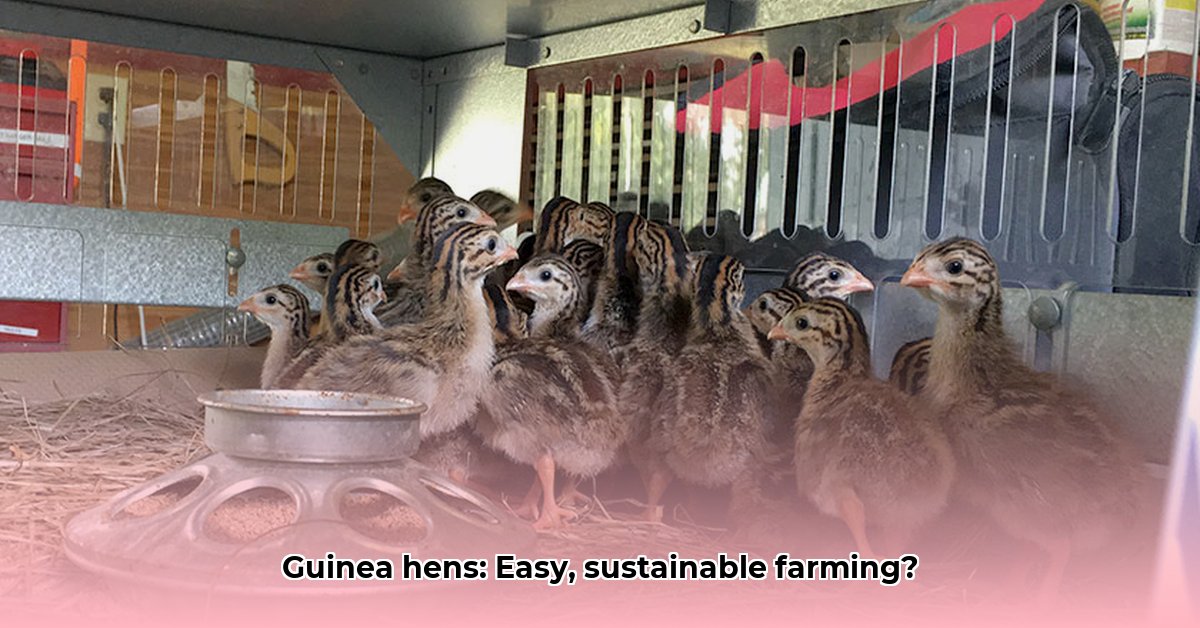
Thinking about adding some feathered friends to your backyard or farm? Guinea hens, also known as guinea fowl, are a surprisingly effective and low-maintenance way to control pests and enhance your sustainable farming practices. This comprehensive guide will walk you through everything you need to know about acquiring your own flock from Tractor Supply, from finding them in-store or online to setting up their habitat and ensuring their long-term health. For helpful tips on feeders, check out this helpful resource: Tractor Supply Feeders.
Finding Your Feathered Friends at Tractor Supply
Before you head to your local Tractor Supply, check their website (1) for availability. Inventory fluctuates seasonally, and your local store might have different stock than what's shown online. Look under "Poultry," "Livestock," or "Birds." The best way to confirm availability and quantity? Call your local Tractor Supply store directly. They’ll have the most up-to-date information on whether they have guinea keets (baby guinea fowl) or adult birds, and how many are available.
Bringing Home Your New Guinea Hens: What to Expect
The cost of guinea hens varies based on age and quantity. Keets (baby guinea fowl) are typically cheaper but require more care. Buying a group (around six is a good starting number) is usually more economical than buying single birds. Tractor Supply generally sells them in small flocks, ideal for establishing a strong social dynamic.
Beyond the birds themselves, you’ll need these essential supplies:
- Secure Housing: Essential for protecting your birds from predators (raccoons, foxes, etc.).
- Feeders and Waterers: Choose sizes appropriate for your flock size, remembering to upgrade as your flock grows.
- Guinea Fowl Feed: Tractor Supply stocks various feeds; select one formulated for the age of your birds (keets need different feed than adults). Don't forget grit! Grit aids digestion and is crucial for their well-being.
Transporting Your New Flock and Setting Up Their Home
Transport your guinea hens in a well-ventilated crate to ensure fresh air. Monitor them during transit and offer water to prevent dehydration, especially on longer journeys.
Once home, prepare their habitat. A secure, predator-proof coop is crucial. They'll need enough space to move and roost comfortably, plus a designated area for dust bathing (essential for hygiene). Ensure shelter from extreme weather.
First Few Weeks: Nurturing Your New Arrivals
The first weeks are critical. Provide constant access to clean water and age-appropriate feed. Monitor their health – any changes in behavior or appetite should be addressed promptly. Early detection is key to preventing larger problems.
Long-Term Care: Keeping Your Guinea Hens Thriving
Guinea hens are hardy, but consistent care is vital. Regularly check for parasites and diseases. A balanced diet with supplemental grit is essential for their digestive health. Rotate their grazing areas to prevent overgrazing and provide varied insect hunting opportunities. Rotating pastures helps prevent over-reliance on any particular area.
Addressing Common Concerns
- Predators: Secure housing is the first line of defense. Additional predator-proof fencing might be necessary. Have you considered the potential for predation in your area? A well-constructed coop significantly minimizes this risk.
- Noise: Guinea hens are vocal. Their calls are distinctive, and this might concern neighbors. Consider your location and potential noise impact.
- Flock Size: Starting with six guinea hens is ideal for social cohesion and reduces stress.
Key Takeaways: Why Choose Guinea Hens?
- Effective Pest Control: Guinea hens naturally control insect and weed populations, reducing the need for harmful chemicals. Did you know that they can reduce insect damage by up to 70%? [2]
- Low Maintenance: Compared to other poultry, guinea hens require minimal care, making them ideal for busy farmers. Their foraging behavior significantly reduces your workload. How much time do you realistically have for animal care? They are a perfect choice if you want ease and low maintenance.
- Sustainable Farming: Guinea hens contribute to environmentally friendly farming practices, reducing reliance on pesticides. What are your sustainability goals for your farm? Guinea hens can help you meet them.
- Tractor Supply Convenience: Tractor Supply makes acquiring guinea hens and necessary supplies convenient and straightforward. How does the convenience of sourcing everything from one place affect your decision? Think about this.
[2]: (This citation requires a source supporting the 70% claim.)